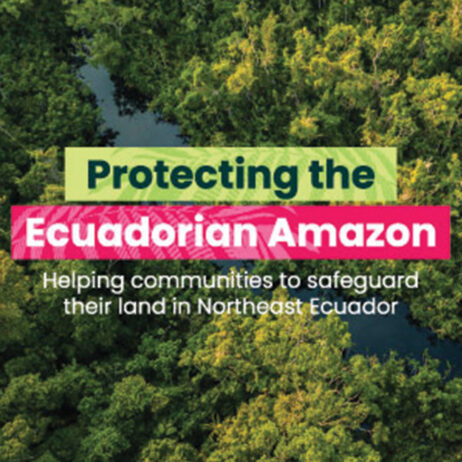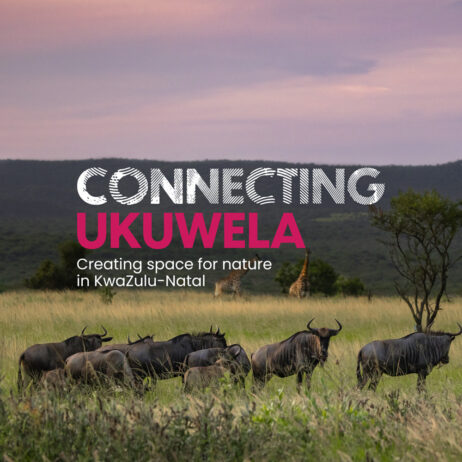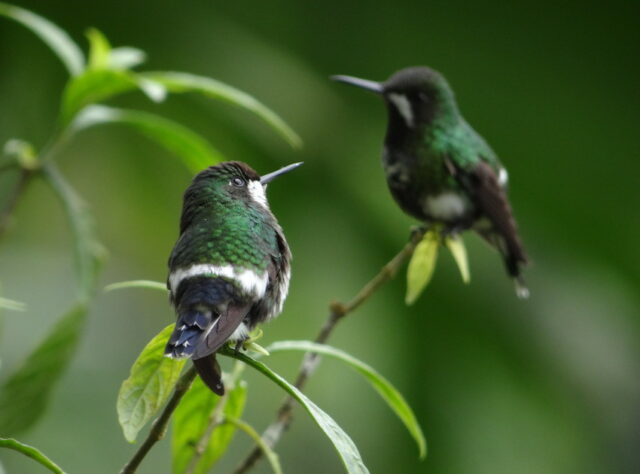
Green Thorntail (Discosura conversii) found in Buenaventura Reserve, Ecuador. Credit: Francisco Sornoza
As the world faces interlinked biodiversity and climate crises and a sixth mass extinction, funds for nature conservation have never been more urgently needed. A new partnership between the Ecological Restoration Fund (ERF) and World Land Trust (WLT) will provide vital financial support for five WLT partners to protect threatened landscapes in countries including Ecuador, Uganda, Paraguay, Tanzania and Mexico.
Funds for transformational change
We are honoured to have been awarded £1.5 million by ERF. This partnership will strengthen our action in the mission that WLT and ERF share: to implement practical and transformational solutions for ecological protection and restoration.
The ERF provides grants for initiatives that protect biodiverse hotspots, rejuvenate degraded landscapes and promote environmental activism. They aim to re-establish nature’s essential interconnections while fostering cultural, social and economic opportunities for the communities inhabiting those landscapes.
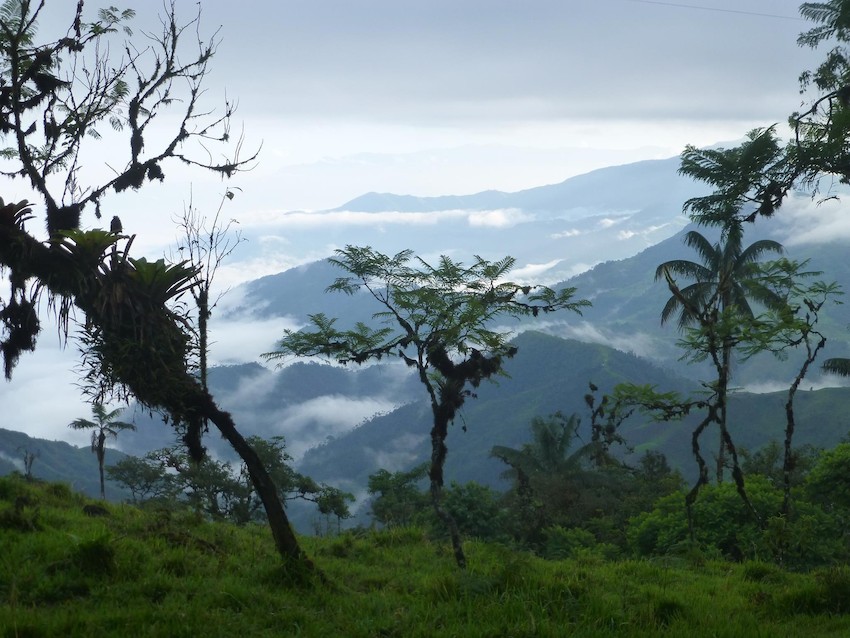
Buenaventura cloud forest landscape in Ecuador. Credit: Claudia Hermes
Protecting threatened habitats and species
WLT’s approach has always been to bring land into conservation in partnership with local organisations and groups. ERF’s funds will support our in-country partners work towards conservation success by securing land acquisitions in areas with species not found elsewhere in the world, developing habitat corridors for species to travel, feed, and rest, and also restoring degraded forests. Some partners will also conduct essential research on threatened species and new species not yet described by science.
Our new partnership with ERF means that we can now advance the work of multiple existing partners to transform the future of threatened ecosystems in which they work. Together, we will protect more acres, more habitats, and more species. The organisations and programmes that will benefit from ERF’s funding include:
Buenaventura Reserve, Fundación Jocotoco, Ecuador
The Buenaventura Reserve is the only reserve protecting the unique cloud forests of southwestern Ecuador. This project will expand Buenaventura Reserve by 450 hectares and enable the future large-scale restoration of around 2,000 hectares. Jocotoco are also testing forest restoration methods as part of its research to scale up future forest restoration initiatives.
Chimpanzee Corridor, ECOTRUST, Uganda
This is the first phase of an ambitious plan to conserve over 50,000 hectares of forest in Western Uganda. This work will protect the rich biodiversity of the Albertine Rift, which includes chimpanzees and some of Africa’s most threatened and endemic vertebrates. Funds will also enable the restoration of a precious native forest by planting around 50,000 native trees.
Gran Chaco, Guyra Paraguay, Paraguay
The Gran Chaco is one of South America’s largest forests. But more than a million hectares of Paraguayan Chaco have been devastated by industrial farming. Much of the Chaco is recognised as a Centre of Plant Diversity and the project area lies within the Gran Chaco UNESCO Man and Biosphere Reserve. Guyra Paraguay will work with farmers and agricultural communities to bring private land into coordinated conservation protection, creating habitat corridors to preserve the Paraguayan Chaco as a functioning ecosystem.
Coastal Forests, Tanzania Forest Conservation Group, Tanzania
This project will build on existing work to secure a wildlife corridor between Rondo Forest Reserve and the Nyerere National Park. This is a crucial habitat for the African Elephant, and the project will restore and protect migratory routes for this species. Community reserves will improve forest connectivity alongside benefits to livelihoods and community land tenure across the Rondo plateau, a mosaic of forest types threatened by ongoing deforestation and degradation.
Cloud Forest, Conservación de Anfibios A.C, Mexico
The Cuetzalan Cloud Forest Amphibian Sanctuary protects multiple species of Mexico’s extraordinary salamander diversity, including the micro endemic Critically Endangered Cuetzalan Salamander (Aquiloeurycea quetzalanensis). Funds will enable the reserve to expand from 8 to 40 hectares, including the restoration of 20 hectares of degraded land. The reserve will involve species monitoring and research and environmental education across local communities.
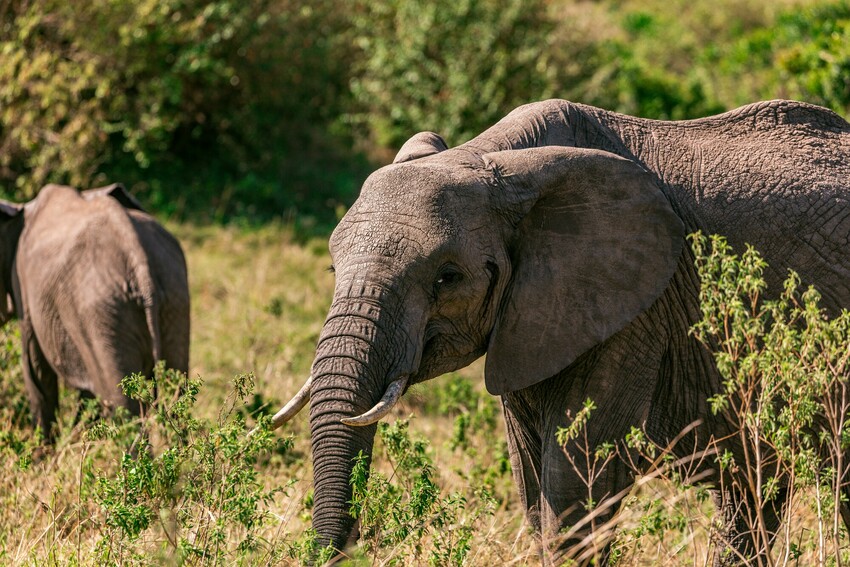
The African Elephant finds habitat in the dense scrub, savannah grasslands in the open landscapes of the Albertine Rift Biodiversity Hotspot. Credit: Anthony Trivet/Unsplash
A crucial decade for nature
We are living in a crucial decade for Ecosystem Restoration, as declared by the United Nations in 2020. The newly formed partnership between ERF and WLT responds to the urgency with which we must act in this pivotal time.
We are incredibly grateful to ERF for their commitment to our projects and partnerships. ERF commitment will make a real difference to the future of threatened species around the world.
Daniel Hotz, Executive Director and Founder of the Ecological Restoration Fund, says:
“We’re proud to support the World Land Trust in their ambitious vision. We restore nature because we are part of nature, intrinsically bound to the health of our environment. Our partnership with the World Land Trust is part of a global movement, the UN Decade of Ecosystem Restoration, that aims to restore and protect our planet.”
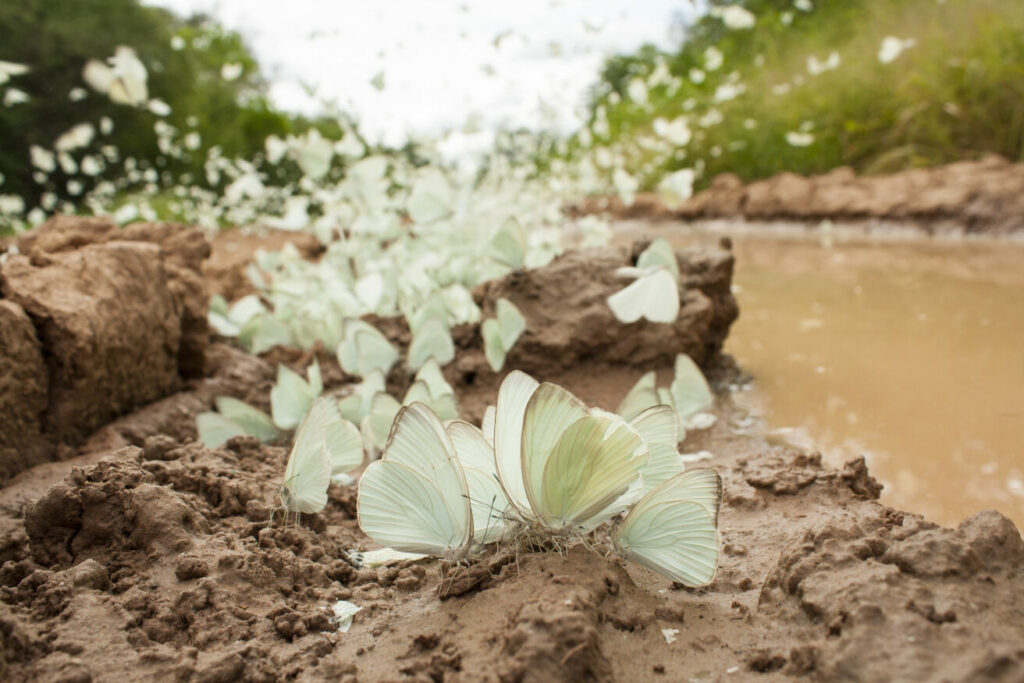
A cluster of Ascia monuste butterflies in Gran Chaco. Credit: Andrea Ferreira

